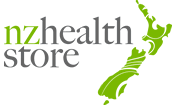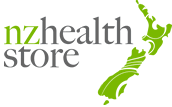Sun Protection
Skin Cancer is the most commonly diagnosed cancer in New Zealand. Melanoma is the most serious type. Our rates are among the highest in the world. At this time of year we often find ourselves wondering how to protect ourselves from the damaging affects of too much sun exposure.
It is important to remember that sun exposure is only one factor in skin cancer, the other factors are a poor diet, low antioxidant intake and exposure to ingested, absorbed and inhaled toxins. The Cancer Society of New Zealand states that “Dietary factors are estimated to account for approximately 30 percent of cancers in industrialised countries - making diet second only to tobacco as a theoretically preventable cause of cancer.”
Evidence shows that we do need a certain amount of UV rays to allow our bodies to produce Vitamin D3. Vitamin D protects us from cancers and other diseases. There is a lot of research into what percentage of the population of New Zealand is Vitamin D3 deficient and the importance of adequate Vitamin D3. I have seen research that puts deficiency as low as 3% of the total population and as high as 60% within certain groups. The recommended level of Vitamin D3 is at least 50 nmol/L however recent research suggests there may be additional benefits in maintaining vitamin D3 levels at 75 nmol/L or higher.
As people limit their sun exposure due to the risk of skin cancer, Vitamin D deficiency rates have been increasing globally. In the US approximately 77% of adults are either insufficient or deficient. Vitamin D deficiency has long been associated with rickets, osteomalacia and osteoporosis. Recent studies have also linked deficiency to disease states, including cancer, cardiovascular, diabetes, and autoimmune disease.
Recent data suggests that women who take Vitamin D and Calcium supplements may be at a reduced risk of developing skin cancer. Sun exposure has also been proven to boost our immune system which in turn helps to protect us from the potential skin cancer risk.
My personal opinion is that as with most things in life moderation is the key. We should adopt a balanced common sense approach from the information that is available to us. I have drawn up what I believe is a sensible guideline to sun safety:
It is important to remember that sun exposure is only one factor in skin cancer, the other factors are a poor diet, low antioxidant intake and exposure to ingested, absorbed and inhaled toxins. The Cancer Society of New Zealand states that “Dietary factors are estimated to account for approximately 30 percent of cancers in industrialised countries - making diet second only to tobacco as a theoretically preventable cause of cancer.”
Evidence shows that we do need a certain amount of UV rays to allow our bodies to produce Vitamin D3. Vitamin D protects us from cancers and other diseases. There is a lot of research into what percentage of the population of New Zealand is Vitamin D3 deficient and the importance of adequate Vitamin D3. I have seen research that puts deficiency as low as 3% of the total population and as high as 60% within certain groups. The recommended level of Vitamin D3 is at least 50 nmol/L however recent research suggests there may be additional benefits in maintaining vitamin D3 levels at 75 nmol/L or higher.
As people limit their sun exposure due to the risk of skin cancer, Vitamin D deficiency rates have been increasing globally. In the US approximately 77% of adults are either insufficient or deficient. Vitamin D deficiency has long been associated with rickets, osteomalacia and osteoporosis. Recent studies have also linked deficiency to disease states, including cancer, cardiovascular, diabetes, and autoimmune disease.
Recent data suggests that women who take Vitamin D and Calcium supplements may be at a reduced risk of developing skin cancer. Sun exposure has also been proven to boost our immune system which in turn helps to protect us from the potential skin cancer risk.
My personal opinion is that as with most things in life moderation is the key. We should adopt a balanced common sense approach from the information that is available to us. I have drawn up what I believe is a sensible guideline to sun safety:
- Stay well hydrated so that all body systems function efficiently to protect you from heat and sun damage.
- Use a non plastic drink container such as our Ecotankas - to avoid hormone mimicking chemicals which themselves can cause cancer.
- Ensure you are regularly exposed to a moderate amount of sun without putting yourself at the risk of getting burnt. This means knowing the limits of your skin type and avoiding the hottest part of the day i.e 10 am – 4pm.
- When exposing yourself to high risk sun is unavoidable cover up with clothing and hats.
- Use a sun screen that does not contain carcinogenic ingredients such as Invisible Zinc.
- If you feel you might be at a high risk of developing skin cancer consider asking your doctor for a Vitamin D test.
- If you are low in Vitamin D consider taking a supplement such as Solgar Vitamin D3 or Nordic Naturals Omega-3D.
- Aim to eat as many portions of vegetables as possible and 1-2 portions of fruit per day. Ideally eating as many different colours as you can to ensure the highest antioxidant levels possible.
- Consider taking a good quality antioxidant specifically designed to support skin health such as Lifestream Astazan which contains astaxanthin; well known for boosting your skin’s natural resistance to sunburn and fighting free radical damage caused by sun exposure.










